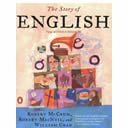
Babies
This documentary series will warm your heart and deepen your understanding of what it means to be human. Calling upon the latest research, the film dives into the intricacies of infant development, including our earliest abilities to process information, develop sensory and spatial cognition, and intuit a sense of trust with our loved ones. Much of the series focuses on the milestones that encompass the first year of an infant's life - the period of time that sets the foundation for all that is to come.
The opening segment - titled Love - explores the biology of bonding between parent and child. A test group of 80 subjects, researchers attempt to trace the inherent feelings of affection that can seemingly develop overnight in new parents. They discover equal amounts of oxytocin - the hormone that inspires a deep feeling of connectivity - in both mother and father. Inversely, the research reveals the detrimental impact that a child can endure in the absence of this affection.
The act of crawling is usually viewed as the preamble to a child's ability to walk. The second episode follows a French scientist who posits a different twist on that theory. She argues that we're geared to perform such movements from our time in the womb, and the rest is merely acclimating to gravity.
After the first year, a baby begins to show more engagement in the use of language. Insights into a child's ability to absorb and mimic language are provided by the director of the Infant Language Lab at Temple University during the third episode of the series.
Sleep forms the basis of the fourth episode. Newborns sleep as much as 16 hours a day. What activities are occurring in an infant's brain during these restful periods, and to what extent does it serve as an important function in their development?
In the final segment, experts examine a child's process for standing upright and taking their first steps. How does this newfound activity shape their perception of the world around them?
Produced by Netflix, Babies is an endlessly fascinating exploration of the various stimuli that form who we are at our earliest age.




more for people who want to see babies and how cute they are than for actual info
Most of this is incredibly interesting and educational, but there are a few experimenters who seem stuck in their heads and theories (and don't seem to feel whatever discomfort they're causing the babies they work with).
I used to nanny for a little boy from 18 months to nearly 7. When he was really young he hated being put down for his nap and would cry so much I would pick him up and he would fall asleep on me for an hour and a half. His dad told me that he never fell asleep on him or his wife, no matter how tired he was.
Its hard to be a baby.